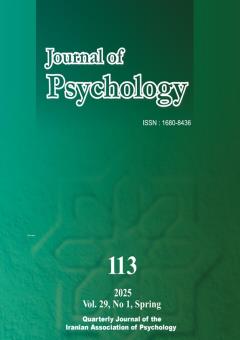The Effectiveness of Mindfulness Therapy on Emotions Control and Tolerance of Failure among Poor Parenting Adolescents of Family Analogous Centers of Tehran
Subject Areas : روانشناسی تربیتی و تحولیZahra EffatDoost Sani 1 , MohammadReza Zarbakhsh Bahri 2 , Alireza Homayouni 3
1 - Department of Psychology, Tonekabon branch, Islamic Azad University, Tonekabon, Iran
2 - Department of Psychology, To.C., Islamic Azad University, Tonekabon, Iran.
3 - Department of Psychology, BandarGaz Branch, Islamic Azad University, BandarGaz, Iran.
Keywords: Mindfulness, Emotions Control, Tolerance of Failure, Welfare Family Analogous Center, Adolescents,
Abstract :
The present article aimed to investigate the effectiveness of mindfulness therapy on emotions control and tolerance of failure among poor parenting Adolescents of Tehran family analogous centers. The method was quasi-experimental by the design of pre- posttest alongside control and follow-up groups. The statistical population consisted of all adolescents between the ages of 13-19 who were under supervision of Tehran welfare organization in 2023. The sample case was consisted of 40 adolescents who voluntarily took part in the study, selected and categorized into two experimental and control groups through purposeful sampling method. Williams et al (1997) questionnaire was used to estimate emotions control, in order to investigate adolescence’s tolerance of failure, Harrington’s (2005) questionnaire was applied. Both groups took part in the pretests of emotions control and tolerance of failure, prior to the treatment. Mindfulness therapy was presented within 8 sessions through an educational protocol for the experimental group, however the control group had no treatment. Both groups re-answered to the same tests of pre- test level after the sessions, the process was repeatedly done 45 days later. The data was evaluated through variance analysis test with repeated measurements. The obtained results demonstrated that mindfulness therapy was effective on the emotions control and tolerance of failure increase, and this effectiveness was stable 45days later (p<0.05). According to the effectiveness and stability of mindfulness therapy, it was suggested to apply this effective method in order to improve adolescents’ tolerance of failure and emotional status in supportive centers as family analogous centers.
